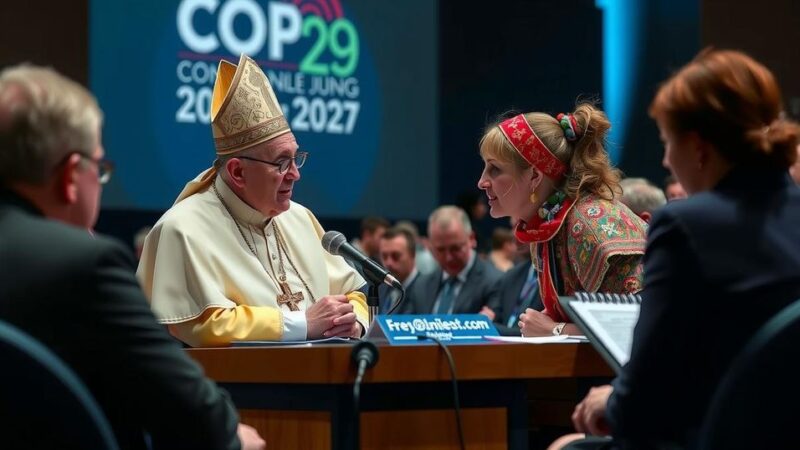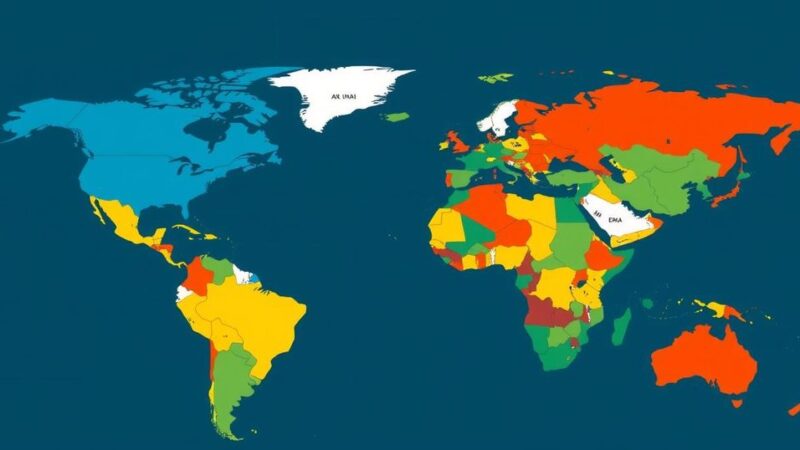The 16th Conference of Parties (COP16) focuses on addressing global biodiversity concerns, with a report from Elsevier highlighting Latin America’s leading role in biodiversity research. The study reveals that the region contributes significantly more research compared to the global average, particularly through Brazil and Mexico. This collaborative research greatly influences policy making, suggesting that scientific inquiry is paramount to effective environmental governance.
The 16th Conference of Parties (COP16) convened in Cali, Colombia, serves as a pivotal event aimed at addressing the extensive challenges to biodiversity. Organized under the United Nations Environment Programme (UNEP), COP16 focuses on implementing the Global Biodiversity Framework established at COP15 in Montreal, which is designed to “halt and reverse nature loss.” This gathering highlights the urgent need for collaborative action among global leaders to confront various drivers of biodiversity decline, including climate change, land and sea use changes, pollution, invasive species, and overexploitation of resources. A report released by Elsevier examines the landscape of biodiversity research, revealing Latin America’s significant contributions. Michiel Kolman, a senior vice-president at Elsevier, noted that biodiversity remains an urgent concern, arguably even more pressing than climate change. The analysis indicates that Latin America is remarkably active in this field, contributing three times the average global output in biodiversity research. Brazil and Mexico collectively account for over half of the research activity in the region, with numerous leading universities contributing to this robust scholarly environment. Moreover, the study indicates that 10 percent of biodiversity research is cited in policy documents, underscoring the influence of scientific inquiry on government decision-making. International collaborations play a crucial role, with Latin America exhibiting a high level of cooperative research efforts, particularly with countries like the United States, the United Kingdom, and Spain. The implications of the report are clear: Latin America is a center of biodiversity research excellence and must continue to leverage this strength for effective environmental stewardship and policy influence.
The context of this article is set against the backdrop of the ongoing challenges faced by global biodiversity. COP16 is particularly significant as it seeks to not only assess the implementation of previously established biodiversity goals but also to set stronger protocols for future action. The previous COP15 resulted in a global framework outlining specific targets to combat biodiversity loss. As nations convene to discuss these matters, the emphasis on research and its impact on policymaking becomes critical. Elsevier’s analysis serves to illuminate the role of Latin America in global biodiversity efforts, showcasing the region as a leader in research output and collaboration, which is essential in formulating effective strategies to address ecological crises.
In summary, COP16 represents a crucial step toward addressing the global biodiversity crisis, with research findings underscoring Latin America’s pivotal role in this endeavor. The region’s significant contribution to biodiversity research not only highlights its scholarly output but also its influence on international policy. As nations build upon their commitments to the Global Biodiversity Framework, it is imperative that they recognize and support the ongoing research efforts that inform and guide these discussions. The insights gathered from Elsevier’s report affirm that fostering international collaboration and leveraging regional expertise are vital to securing a sustainable future for biodiversity.
Original Source: publishingperspectives.com





